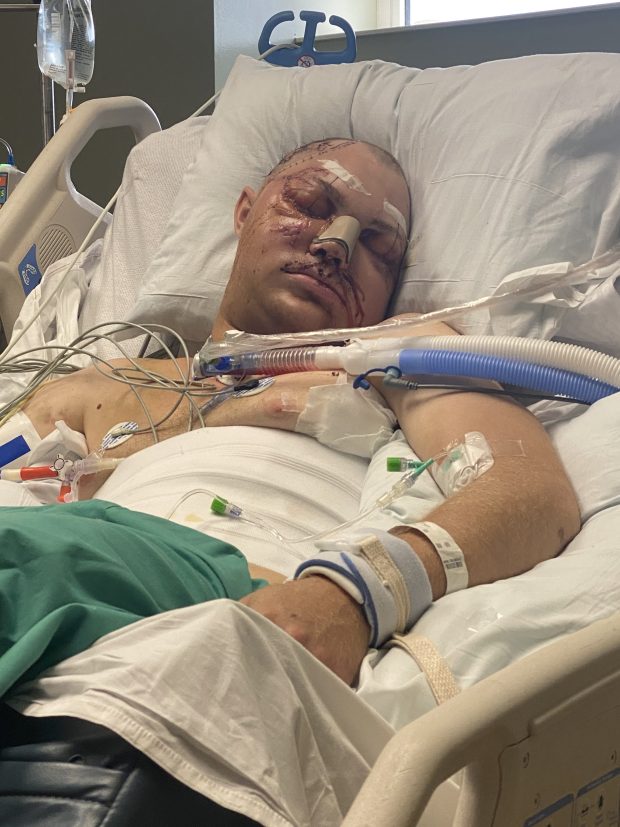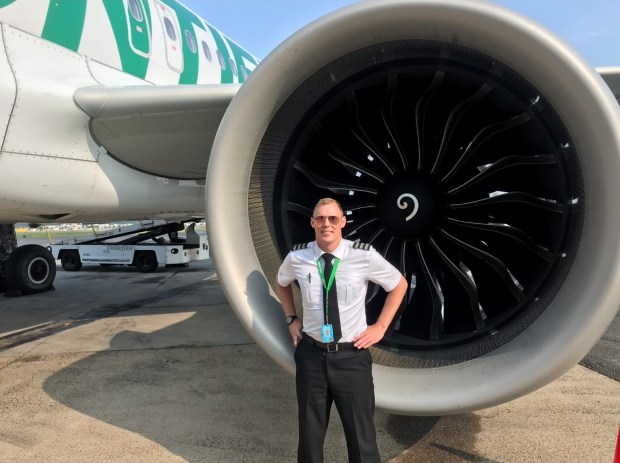Agencies established to enforce public safety laws have been gutted, attorney Kenneth J. Allen said, so he hopes the $37.7 million settlement following a catastrophic crash in a construction zone sends a signal to companies to follow those rules.
It was the largest pretrial settlement for a personal injury ever reported in Indiana, Allen said during a news conference Friday at his Chesterton office.
Brad Detert, 37, of Valparaiso, sued Traffic Control Specialists following the accident, alleging failure to comply with state and federal signage and minimum safety requirements at the work site.
Otto Shragal, a partner with Allen Law Group, represented Detert along with Allen.
Detert was riding his Honda motorcycle eastbound on U.S. 30 in Valparaiso, headed toward Porter County Regional Airport, on Aug. 27, 2020, when a westbound car turning south toward the Tractor Supply store struck him. The driver was confused by the traffic control measures in place at the time, Shragal said.
“This intersection is probably the worst intersection in the whole project,” Shragal said. The project involved repaving U.S. 30 from around the Valparaiso airport to Hobart. It was almost finished, with just the reflectors between lanes, called pucks, left to install.
Shragal used footage from a police officer’s body camera to prove there were orange cones in place at the time of the accident. That came about 4.5 to five hours into a TCS deposition, after TCS testified there were no cones in place at the time, Shragal said.
“They were caught in their lie, and they couldn’t back out of that corner,” he said.
The footage showed TCS picking up cones while first responders were at the accident site.
Detert was a commercial airline pilot, working for Frontier, and operated a flight school at the Valparaiso airport before the crash.
“I really enjoyed pursuing that passion and making it a livelihood,” he said. Teaching and mentoring pilots was a special joy. “My life before that accident was almost too good to be true.”
“That’s probably the most grievous harm for him – the freedom to resume his career, the freedom to live his life,” Shragal said.
Detert was in an induced coma for weeks at Methodist Hospital in Indianapolis and endured numerous brain surgeries as well as treatment for broken bones, Shragal said.
“I lost an eye. I lost the ability to smile because my face is paralyzed,” Detert said.
“I have excruciating pain all over my left half of my face that has not even gotten a little tiny bit better since the accident. It’s going to be a lifetime struggle of constant pain, blindness and disability.”
One of Detert’s eyes was removed and his lid sewn shut because of light sensitivity. The other eye has metal in it to help him close it, Shragal said.

Discussing the accident, Detert said, “It hurts me that there are those who seek to ignore the regulations.”
“Driving an automobile is a pretty cognitively challenging task,” Allen said. That’s why standardized rules for traffic control are in place. “When that standardization is taken away, it’s almost inevitable that someone is going to get hurt.”
“The agencies that are entrusted with enforcing safety in our country like OSHA have been gutted,” Allen said. “The only way they are enforced is by the companies themselves, and if the companies themselves choose not to enforce them because for one reason or another people believe that they can improve or increase production or profit,” people can get hurt or killed.
“Our job here is to send a message to those companies that in the end it will be more expensive for them to ignore safety rules and regulations,” he said. “In the end, it is better for them to enforce safety rules and regulations.”
Doug Ross is a freelance reporter for the Post-Tribune.




